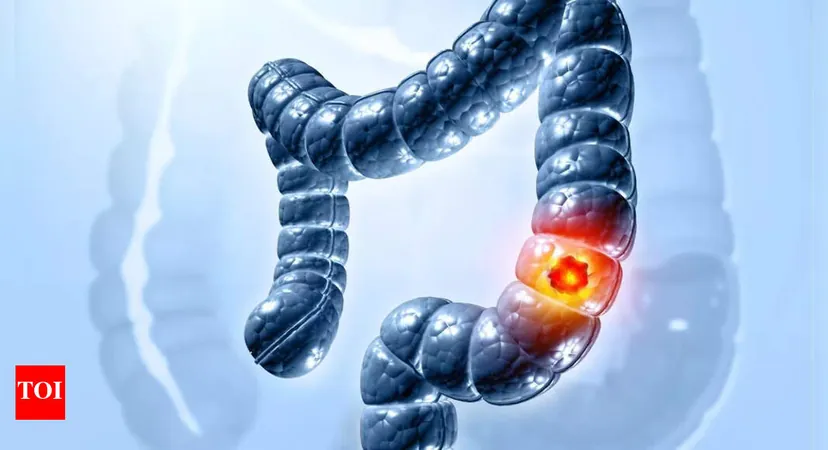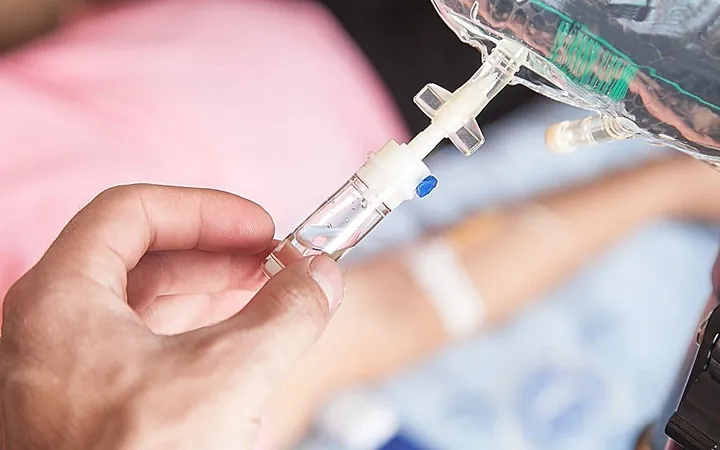
Spot the Signs: Early Warnings of Colon Cancer and How You Can Lower Your Risk!
2025-03-31
Author: Wei
Colon cancer is a pressing health issue in the United States, ranking as the third most prevalent cancer and the second leading cause of cancer-related deaths. With early detection being paramount, identifying symptoms such as changes in bowel habits, rectal bleeding, and abdominal pain can be lifesaving. Incorporating regular screenings and making healthy lifestyle choices can dramatically lower one’s risk of developing this dangerous disease.
Understanding Colon Cancer
Also referred to as colorectal cancer, colon cancer starts in the colon (large intestine) or rectum, crucial components of the digestive system. It usually begins as benign growths called polyps that may eventually turn cancerous. While not all polyps become malignant, those that do often progress unnoticed, showing few symptoms until the cancer has advanced.
Factors that heighten the risk of colon cancer include age, family history of colorectal cancer, personal medical history, and lifestyle choices such as smoking, alcohol consumption, obesity, and dietary habits.
Recognizing the Early Warning Signs
The early symptoms of colon cancer can often be subtle and are mistaken for less serious ailments. Notably, men are at a higher risk compared to women for both contracting and succumbing to this disease, as reported by the CDC.
According to the American Cancer Society, the following symptoms may indicate the presence of colon cancer:
- **Altered bowel habits:** Persistent diarrhea, constipation, or narrowing of the stool that lasts for several days.
- **Urgency in bowel movements:** A sensation of needing to move the bowels that isn’t relieved.
- **Rectal bleeding:** Bright red blood or dark stools that may indicate bleeding within the digestive tract.
- **Abdominal discomfort:** Cramping or persistent pain in the belly area.
- **Fatigue and weakness:** Unexplained exhaustion that doesn’t seem to have a clear cause.
- **Unintended weight loss:** Dropping pounds without any dieting or increased exercise.
Proactive Measures to Reduce Risk
Routine screenings are vital for early detection and prevention of colon cancer. The CDC indicates that colorectal cancer screening can uncover precancerous polyps, allowing for their removal before they evolve into cancer. Moreover, identifying colorectal cancer early on significantly improves treatment effectiveness.
To further lower risk, consider incorporating the following lifestyle changes:
- **Increase physical activity:** Aim for at least 150 minutes of moderate exercise per week.
- **Maintain a healthy weight:** Obesity is a known risk factor for various cancers, including colon cancer.
- **Adopt a nutritious diet:** Focus on a diet rich in fruits, vegetables, and whole grains while limiting saturated fats from animal products.
- **Moderate alcohol intake:** Limit consumption to reduce cancer risks; the CDC recommends no more than one drink per day for women and two for men.
- **Avoid tobacco:** Smoking is linked to several types of cancer, including colorectal cancer.
When diagnosed with colon cancer, treatment options depend on the tumor's size and spread. Common treatments may include surgery to remove the cancerous tissues, radiation therapy, chemotherapy, targeted therapies, or immunotherapy techniques.
Understanding and acting on early warning signs is crucial for improving outcomes in colon cancer treatment. Take charge of your health and consider routine screenings and healthy lifestyle choices to safeguard yourself against this potentially deadly disease. Remember, awareness is key—stay informed, and don’t hesitate to consult with healthcare professionals about your risk factors!





 Brasil (PT)
Brasil (PT)
 Canada (EN)
Canada (EN)
 Chile (ES)
Chile (ES)
 Česko (CS)
Česko (CS)
 대한민국 (KO)
대한민국 (KO)
 España (ES)
España (ES)
 France (FR)
France (FR)
 Hong Kong (EN)
Hong Kong (EN)
 Italia (IT)
Italia (IT)
 日本 (JA)
日本 (JA)
 Magyarország (HU)
Magyarország (HU)
 Norge (NO)
Norge (NO)
 Polska (PL)
Polska (PL)
 Schweiz (DE)
Schweiz (DE)
 Singapore (EN)
Singapore (EN)
 Sverige (SV)
Sverige (SV)
 Suomi (FI)
Suomi (FI)
 Türkiye (TR)
Türkiye (TR)
 الإمارات العربية المتحدة (AR)
الإمارات العربية المتحدة (AR)